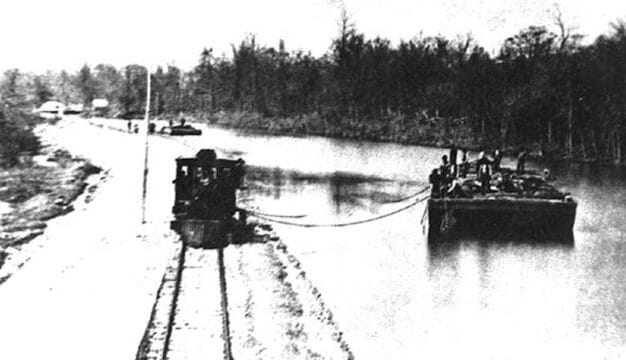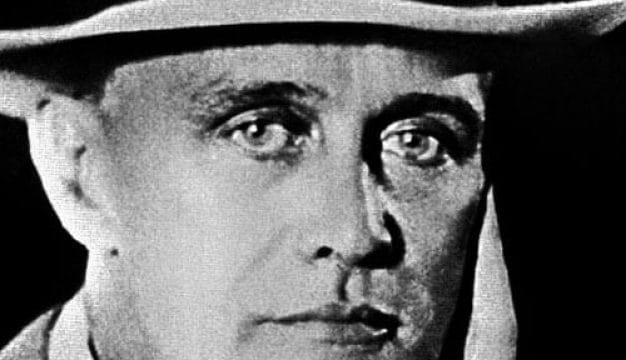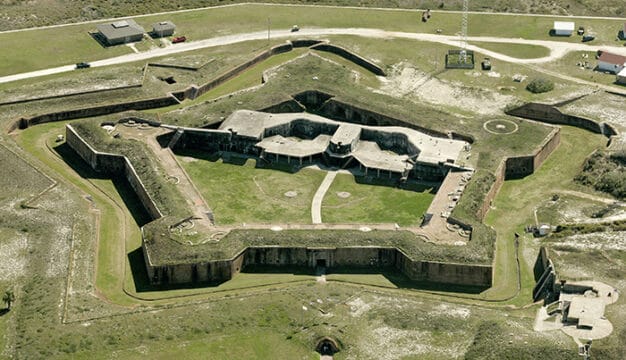Charles Octavius Boothe
Charles Octavius Boothe (1845-1924) was an influential Black Baptist preacher, educator, and author who worked with white leaders and philanthropists to assist African Americans in post–Civil War Alabama. He helped found Selma University, the Dexter Avenue-King Memorial Baptist Church in Montgomery, and the Colored Baptist Missionary Convention for the State of Alabama, the first statewide African American Baptist denominational organization.
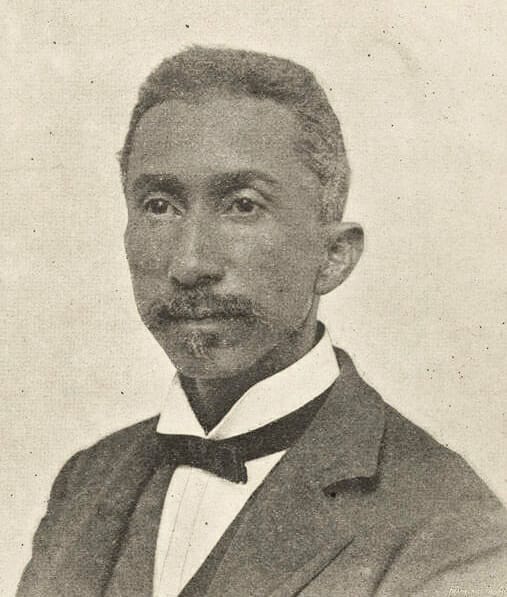 Charles Octavius Boothe
A native of Mobile County, Boothe was born on June 13, 1845, as the legal property of planter Nathan Howard Sr. Boothe’s maternal great-grandmother had been born in Africa, his grandmother in Virginia, and his mother in Georgia. The identity of Boothe’s father is not known, but he proudly claimed that his paternal grandfather was born in Africa. According to his autobiography, Boothe went to live with Nathan Howard Jr. at the age of six, upon the death of Howard Sr. He then worked for Col. James S. Terrel in his law office as a clerk at the age of 14. Boothe was raised in the Black Baptist faith by his grandfather and mother; he claimed his paternal grandfather had been literate enough to read the Bible. Boothe himself learned the alphabet from the lettering on tin pie plates and as a youth was able to read the Bible himself.
Charles Octavius Boothe
A native of Mobile County, Boothe was born on June 13, 1845, as the legal property of planter Nathan Howard Sr. Boothe’s maternal great-grandmother had been born in Africa, his grandmother in Virginia, and his mother in Georgia. The identity of Boothe’s father is not known, but he proudly claimed that his paternal grandfather was born in Africa. According to his autobiography, Boothe went to live with Nathan Howard Jr. at the age of six, upon the death of Howard Sr. He then worked for Col. James S. Terrel in his law office as a clerk at the age of 14. Boothe was raised in the Black Baptist faith by his grandfather and mother; he claimed his paternal grandfather had been literate enough to read the Bible. Boothe himself learned the alphabet from the lettering on tin pie plates and as a youth was able to read the Bible himself.
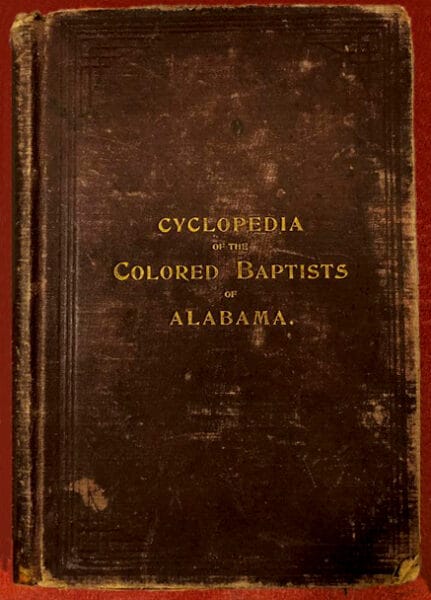 Boothe’s Cyclopedia
Most of the details of Boothe’s early life consist of his own reminiscences in his partly autobiographical Cyclopedia of the Colored Baptists of Alabama, published in 1895. He shaped his memoirs around his Christian beliefs, although he did not publicly convert to Christianity until 1866. He depicted slavery as a human sin for which whites in the North and South shared equally in the guilt. At the same time, Boothe’s Christianity led him to believe in a benevolent God who used slavery to introduce Christianity to enslaved persons. But Boothe noted, in his none-too-subtle critique of white evangelicals, that most enslaved people did not know much about the Christian gospel at the end of the Civil War. White evangelists focused on obedience in their teachings to the enslaved, ignoring the New Testament’s messages of salvation and the obligation to lead a moral life. Addressing this lack of religious knowledge became Boothe’s mission for the remainder of his life. From the mid-1860s to the turn of the twentieth century, Boothe’s career followed two sometimes intertwined paths: He strove to improve the lives of formerly enslaved persons through educational and religious efforts and worked cooperatively with white Baptist organizations, in the North and South, to fund those efforts.
Boothe’s Cyclopedia
Most of the details of Boothe’s early life consist of his own reminiscences in his partly autobiographical Cyclopedia of the Colored Baptists of Alabama, published in 1895. He shaped his memoirs around his Christian beliefs, although he did not publicly convert to Christianity until 1866. He depicted slavery as a human sin for which whites in the North and South shared equally in the guilt. At the same time, Boothe’s Christianity led him to believe in a benevolent God who used slavery to introduce Christianity to enslaved persons. But Boothe noted, in his none-too-subtle critique of white evangelicals, that most enslaved people did not know much about the Christian gospel at the end of the Civil War. White evangelists focused on obedience in their teachings to the enslaved, ignoring the New Testament’s messages of salvation and the obligation to lead a moral life. Addressing this lack of religious knowledge became Boothe’s mission for the remainder of his life. From the mid-1860s to the turn of the twentieth century, Boothe’s career followed two sometimes intertwined paths: He strove to improve the lives of formerly enslaved persons through educational and religious efforts and worked cooperatively with white Baptist organizations, in the North and South, to fund those efforts.
In the early 1870s, Boothe joined the Colored Baptist Missionary Convention of the State of Alabama, which offered Black Baptists a forum to express their faith outside of white control. The organization generally devoted its energies to evangelism, racial uplift, and ministerial training. Boothe used his writing skills as recording secretary and also served as a missionary, preaching to freed people. Along with Talladega minister William H. McAlpine, he urged the convention to support Selma University, which opened in 1878, and served as its president in 1901 and 1902. He also served as editor of a religious newspaper, the Baptist Pioneer, using subscriptions to underwrite some of the college’s expenses. In 1877, he helped found the Dexter Avenue Baptist Church, made famous during the civil rights movement by its pastor, Martin Luther King Jr.
From the early 1870s until 1900, Boothe travelled regularly throughout central Alabama, conducting his ministerial training institutes on basic literacy and elementary Baptist beliefs as well as more advanced theological concepts. He especially urged churches to hold members accountable for living a moral life. In part, Boothe hoped that moral and articulate church members would counter the racist belief among many whites that without slavery African Americans would regress into savagery. Boothe himself was censored by his church in the mid-1880s for alleged marital improprieties between himself and his wife, Mattie Alice. He consistently denied the allegations and by the late 1880s was apparently again a church member in good standing. In 1901, he joined with Booker T. Washington in publicly opposing calls to rewrite Alabama’s constitution, decrying it as racially restrictive.
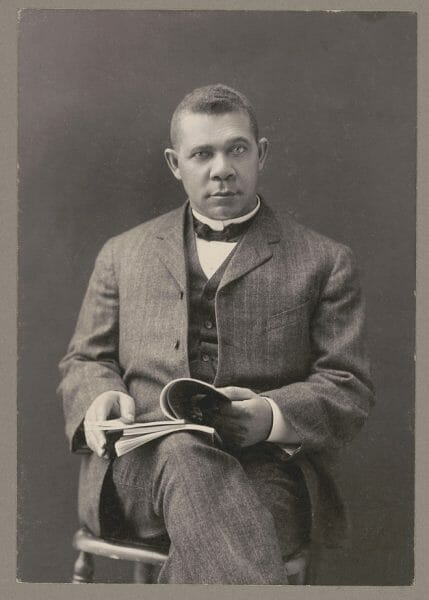 Booker T. Washington
Some scholars have harshly criticized Black preachers for accommodating white expectations and failing to attack increasing segregation directly. Yet ministers like Boothe saw their job as preparing their followers for heavenly salvation. During the 1870s and 1880s, despite much racial violence, Jim Crow was only emerging and had not yet come to dominate race relations. At that time, Boothe worked collaboratively with white Baptist groups and philanthropists to obtain funding for missionary efforts and early educational institutions. He garnered support from major organizations such as the Alabama Baptist Convention and the American Baptists Home Missionary Society to help fund his ministerial institutes and provide basic instruction to often ill-prepared African American preachers. The Home Missionary Society also contributed a large annual sum for the operation of Selma University. Boothe consistently maintained the position, however, that white support did not confer control of religious work among Alabama’s African Americans. When white demands for more control increased in the early 1880s, Boothe and his followers balked, and Alabama’s white Baptists withdrew their support, although cooperative arrangements with the northern-based Home Missionary Society continued. Boothe could be principled without permanently harming his personal relationships with white religious leaders, however. In 1917, Boothe received support from the Southern Baptist Convention to assist African Americans who were migrating to northern cities. During this time, he publicly opposed immigration from Eastern Europe, fearing that the influx of foreign laborers would undermine African American workers. He also viewed the religious ideas of these new peoples as potentially dangerous to his Baptist faith.
Booker T. Washington
Some scholars have harshly criticized Black preachers for accommodating white expectations and failing to attack increasing segregation directly. Yet ministers like Boothe saw their job as preparing their followers for heavenly salvation. During the 1870s and 1880s, despite much racial violence, Jim Crow was only emerging and had not yet come to dominate race relations. At that time, Boothe worked collaboratively with white Baptist groups and philanthropists to obtain funding for missionary efforts and early educational institutions. He garnered support from major organizations such as the Alabama Baptist Convention and the American Baptists Home Missionary Society to help fund his ministerial institutes and provide basic instruction to often ill-prepared African American preachers. The Home Missionary Society also contributed a large annual sum for the operation of Selma University. Boothe consistently maintained the position, however, that white support did not confer control of religious work among Alabama’s African Americans. When white demands for more control increased in the early 1880s, Boothe and his followers balked, and Alabama’s white Baptists withdrew their support, although cooperative arrangements with the northern-based Home Missionary Society continued. Boothe could be principled without permanently harming his personal relationships with white religious leaders, however. In 1917, Boothe received support from the Southern Baptist Convention to assist African Americans who were migrating to northern cities. During this time, he publicly opposed immigration from Eastern Europe, fearing that the influx of foreign laborers would undermine African American workers. He also viewed the religious ideas of these new peoples as potentially dangerous to his Baptist faith.
Boothe authored many newspaper columns and contributed reports on missionary activities to denominational minutes. He also published two important volumes: The Cyclopedia of the Colored Baptists of Alabama, which documented the efforts of African American Baptists in Alabama, and Plain Theology for Plain People, which was an easy-to-read and concrete explanation of religious concepts for African American Baptist ministers and church members. This second volume also offered the encouraging message to post–Civil War African Americans that God favors the poor and downtrodden over the wealthy and independent. Like most of Boothe’s teachings and writings, it comforted Baptist believers while condemning dominant racial structures. After many years of working against racial oppression, Boothe wearied of the Jim Crow South. He moved north some time in the 1910s, although little is known about his life after he left Alabama. He died in Detroit in 1924.
Additional Resources
Boothe, Charles Octavius. The Cyclopedia of the Colored Baptists of Alabama: Their Leaders and Their Work. Birmingham: Alabama Publishing Company, 1895.
Crowther, Edward R. “Charles Octavius Boothe: An Alabama Apostle of ‘Uplift.'” Journal of Negro History 78 (Spring 1993): 110-16.
———. “Interracial Cooperative Missions Among Blacks by Alabama’s Baptists, 1868-1882.” Journal of Negro History 80 (Summer 1995): 131-39.
